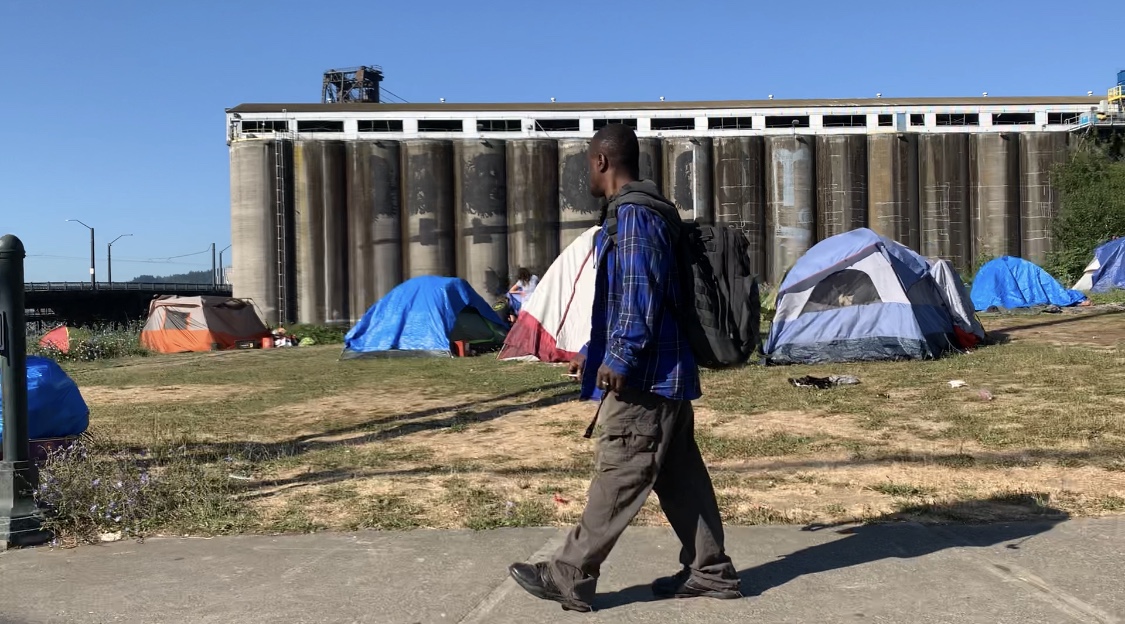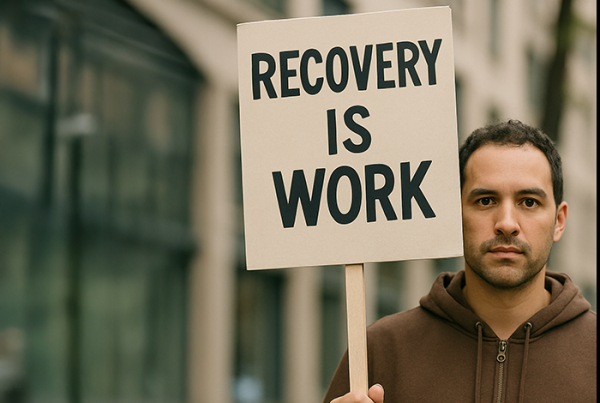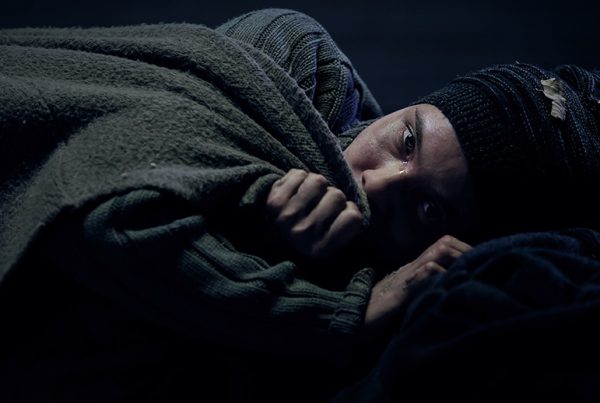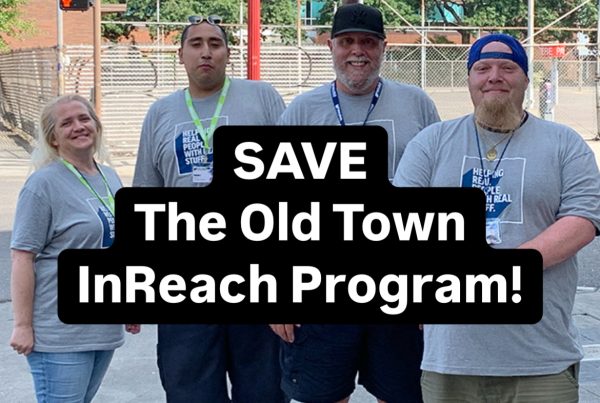Portland has a homelessness crisis. An estimated 5,228 people are experiencing homelessness in Portland, according to Multnomah County’s 2022 Point-in-Time Count of Homelessness.
With only approximately 1,365 shelter beds available you see many people living in tents, vehicles, and on sidewalks across the city. But why are so many people homeless to begin with?
The same study found that 38.5% of people experiencing homelessness say they are suffering from mental illness, 26% from physical disabilities, and 37.5% from substance abuse disorders. People are hurting with nowhere to turn.
Sean L., age 55, recently wrote to us that he is doing well. He wanted to say ‘thank you’ for offering him a place to sit down out of the rain and eat for free when he was experiencing homelessness due to undiagnosed bipolar disorder paired with drug addiction.
“You cared enough to feed me when I was cold, wet, and dangerous.”
Homelessness Crisis: A Life Saved by Charitable Aid
“[Blanchet] saved my life over and over again when I was sick and down and out,” Sean wrote. “You cared enough to feed me when I was cold, wet, and dangerous. Thank you for caring. Thank God that I am alive and housed and working now. There are so many people with dual diagnoses camped out on the street. When you take those two together [mental illness and addiction] you have a mess on your hands. I couldn’t recognize my bipolar disorder at the time. It took a lot of help to get me to where I am today.”
There are so many barriers to finding permanent housing. It’s not as simple as some people would like to think. For many in our community, it’s easier to believe that being homeless is a choice. Sleeping outside in the rain and cold, on the hard ground, wearing dirty clothes, and begging for basic human necessities is not a life people choose for themselves.
Homelessness Crisis: Addiction and Mental Illness
“My mom didn’t know how to help me. I was having a hard time mentally. She knew it. She was worried that I would harm myself or others,” says Sean. “She even called the cops once.”
Families with limited financial resources often don’t know how to care for an adult family member with mental illness, especially one who is combative. Like Sean’s family, they often reach the end of their rope and are scared for their safety and wellbeing.
Sean’s undiagnosed bipolar disorder caused him to be combative with anyone around him. He began self-medicating with any mind-altering substance he could find. Sean eventually began using Ecstacy and methamphetamines. Friends and family occasionally took him in but he was just too much for them. Sean ended up on the streets, sometimes sleeping under a bridge. He found meals and kindness during this terrible time in his life at Blanchet House of Hospitality.
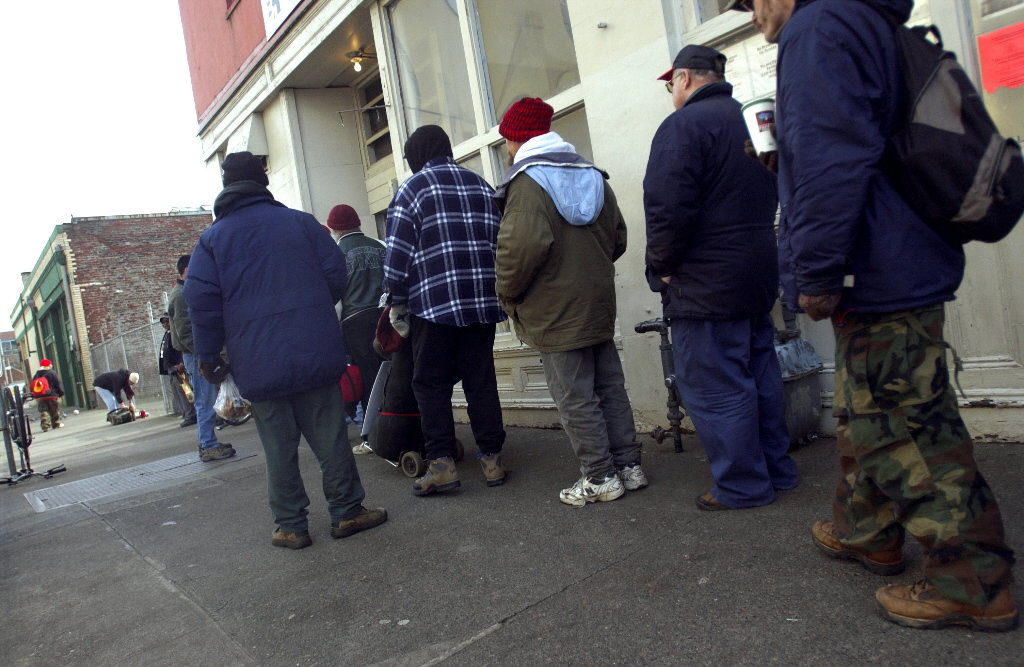
Portland Homelessness Crisis: People wait in line for a meal outside Portland’s Blanchet House of Hospitality in 2008.
In Portland, Mental Health of the Homeless Must be Addressed
“Decades of deinstitutionalizing mental illness locally and nationally have made it impossible to meet the increasing demand for mental health care,” said Neal Rotman, interim deputy director of Multnomah County’s mental health and addiction services division as published in the Salem Reporter. “Oregon has less than one-tenth the number of state hospital beds for mentally ill patients than it had in the 1950s, and yet the demand for beds has grown.”
Once Sean was able to take prescribed lithium for his bipolar disorder and receive free housing from Central City Concern he was able to be productive again. It’s not enough to only be sober and mentally stable. A formerly homeless person also needs long-term affordable housing and a support system. Sean was able to receive a $775 a month housing grant from the state of Washington that subsidizes his modest apartment for five years. The grant program takes a lot of stress off participants which is a key driver of relapse. Now he is able to work and save money while being held accountable.
Portland Has a Homelessness Crisis
It takes a strong safety net of social service providers to help someone escape homelessness. Offering food and kindness may not seem like much but it can help someone gain the strength needed to tackle bigger issues in their life. Sean was able to receive mental health treatment at Central City Concern and Transition Projects Inc. To better serve these individuals, we must remove the stigma surrounding mental health treatment and replace it with understanding. This may be the only hope for people experiencing homelessness to regain healthy, safe, and productive lives.
“I’ve been there. The guy in crisis is hungry too, he’s just not thinking right,” Sean says. “There’s nothing enjoyable about having to live like that.”
-by Julie Showers














